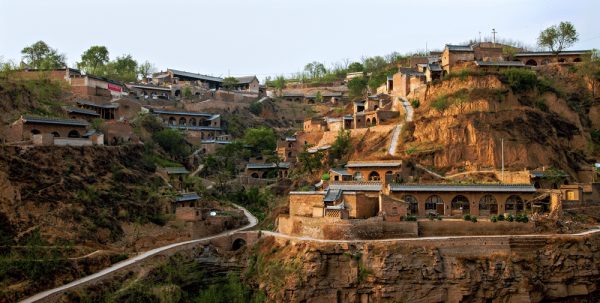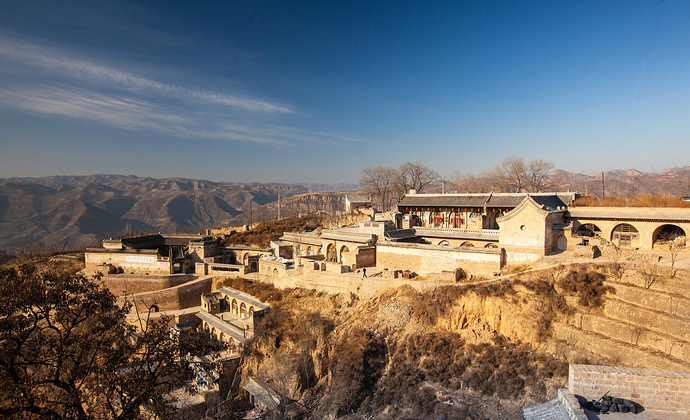
Clinging to the cliff-face of a deep valley within Lijia Mountain, the ancient village of Lijiashan blends seamlessly with its natural surroundings. At first glance, you may not even notice that it’s there! It rests about 10 kilometres (6 mi) from Qikou, a town whose history is inseparably intertwined with Lijiashan. Over 500 years ago, Qikou flourished as one of the major port towns along the Yellow River. It was a vital trading hub located at an impassable stretch of the river, where goods heading north or south would be unloaded at the port and carried overland by caravans. Families in the town made a fortune running hotels, caravan services, restaurants, shops, warehouses, and a myriad of other establishments catering to the regular influx of wealthy merchants. Some of them even became merchants themselves!
Many of these newly rich businessmen decided that, in the interests of safety, it would be best to move their families and their homes elsewhere. They squirreled their families away in the mountains, constructing secret villages where they could live in comfort. Lijiashan is one such village and its name, which means “Mountain Home of the Li Family”, is a reference to the fact that the two most luxurious mansions in the village were constructed by the Li family during the Qing Dynasty (1644-1912). In fact, the village is home to over 400 magnificent yaodongs or “loess cave houses”, which are buildings carved directly into the rocky outcrop of the mountainside. However, these aren’t just any old yaodongs!

These yaodongs are unique in that they were built by wealthy merchant families, rather than the other yaodongs in Shanxi province, which were typically the work of poor farmers. The yaodongs of Lijiashan are not humble earthen dwellings, but were constructed from the finest materials, including brick, stone, and tile. They are two or three storey affairs, complete with front courtyards resembling traditional Chinese courtyard houses. Resplendent with a plethora of stone carvings, brick sculptures, and woodcuttings, these yaodongs are more like mansions than simple caves.
In its heyday, Lijiashan was home to over 600 families, most of whom were from the Li clan. However, as the ancient port of Qikou gradually became obsolete so too did this venerable village. Dazzled by the opportunities on offer in China’s rapidly developing cities, many of its younger inhabitants have left in search of their own fortune. Nowadays, only 40 families remain and most of the residents are in their twilight years.
These locals depend upon tourism and allow visitors the unique chance to stay in their cave dwellings. In a stroke of luck, Lijiashan has risen to become a painter’s paradise. Every year, hundreds of artists flock to the village to take advantage of the stunning panoramic views. From the comfort of their rented cave rooms, they produce vivid images of the mountain valley and the picturesque yaodongs carved into its sides. After all, a picture paints a thousand words!